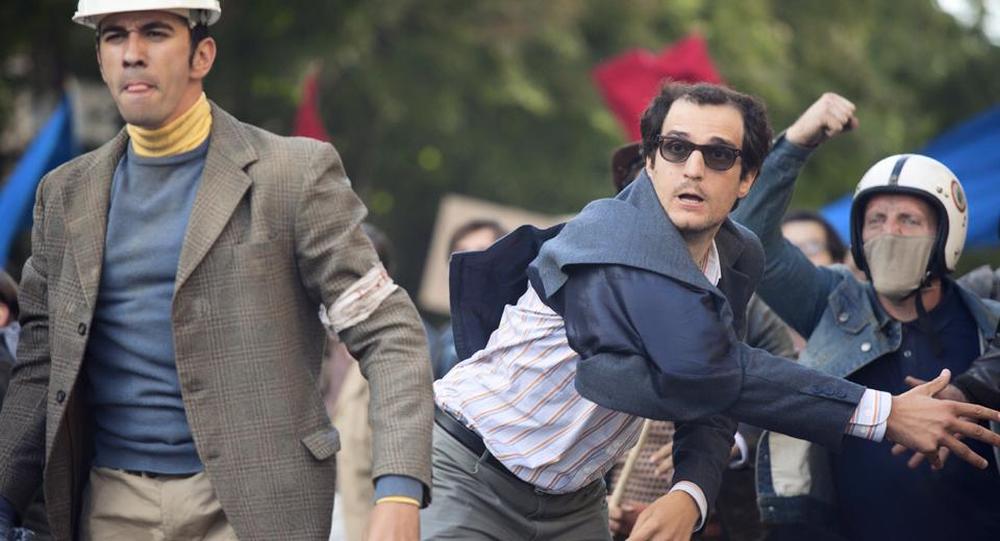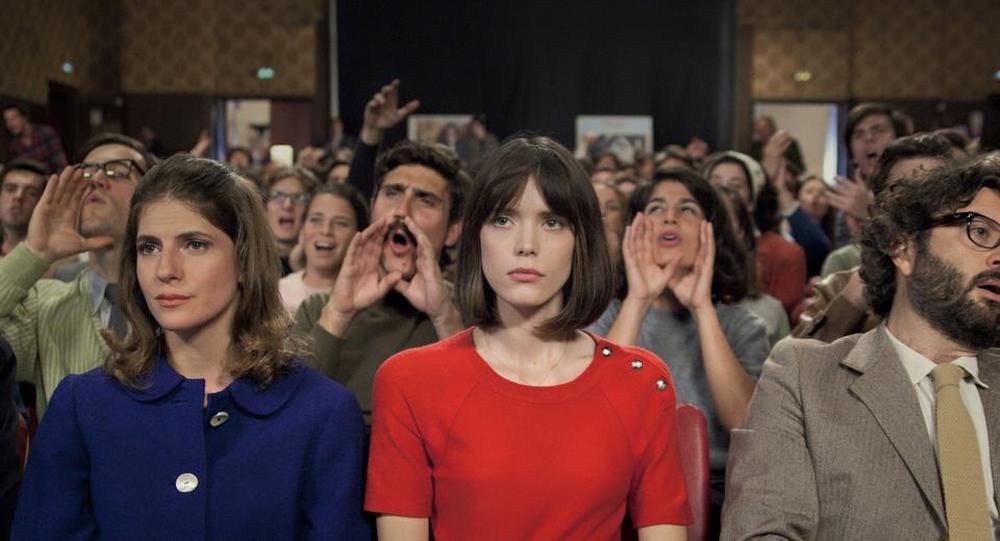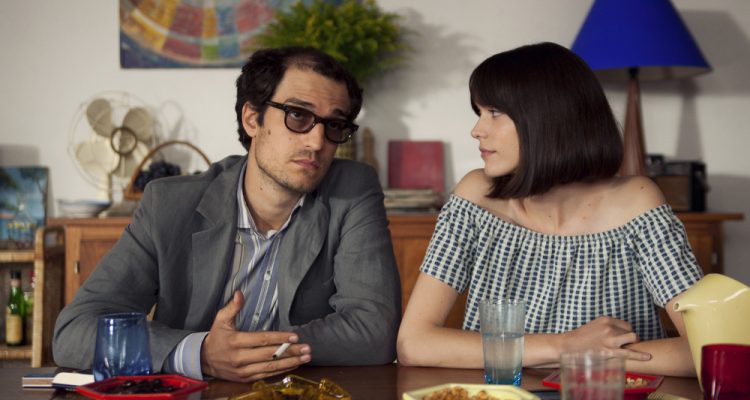Michel Hazanavicius (director of the breezy Best Picture Oscar winner “The Artist”) returns to Cannes and takes on legendary French New Wave film icon Jean-Luc Godard in his latest film, “Redoubtable” — bold move, especially after his previous film, “The Search,” bombed badly at the festival, and didn’t even earn a stateside release. But Godard worshipers and Hazanavicius skeptics should keep a couple of things in mind before sharpening their pitchforks. Firstly, the film is a comedy and any analytical inspections of something deeper and more meaningful will only end in scrunched up bits of frustration. Secondly, it’s not really about Godard. It’s not a biopic, nor a commentary on his universal cinematic influence. The film is based on Godard’s ex-wife Anne Wiazemsky’s novel “Un An Après“(“A Year After“) and focuses on the rise and fall of the couple’s marriage. In essence, Hazanavicius has gone back to being a film geek who plays in his harmless sandbox with subjects that are not way over his head, crafting — for the most part — a pretty delightful popcorn movie for other film geeks.
READ MORE: The 20 Most Anticipated Films Of The 2017 Cannes Film Festival
May 1968 is the pivotal moment in Godard’s history when most of “Redoubtable” takes place, a year after his “La Chinoise” flopped. We first see Jean-Luc (Louis Garrel) and Anne (Stacy Martin) on the set of “La Chinoise,” as their voice-overs tell us about their mutual affection for one another. Once the film starts getting ripped apart by critics and the Chinese government after debuting at a tiny film festival in Avignon, we approach the month of May in 1968, when Godard begins seriously examining himself as an artist, political activist, and self-appointed voice of the working class. Godard becomes a bundle of contradictions: self-deprecating; grossly critical of cinema; obsessing over the De Gaulle regime; talking like a Maoist but acting like a typical elitist; and twisting every conversation into a critical exposition of Jean-Luc Godard, the man and the myth. Of course, this makes him completely insufferable to be around, alienating his wife and tight-knit artistic circle of friends — Michèle Rosier (Bérénice Bejo), Jean-Pierre Bamberger (Micha Lescot) and Michel Cournot (Grégory Gadebois) — in the process. The more of a petulant child he becomes, the deeper he hurts Anne, who begins to see how unattractively self-absorbed he’s become. Naturally, their marriage deteriorates as a result.

Wiazemsky’s novel is not as grave of an account of a disintegrating marriage as Ingmar Bergman’s “Scenes From A Marriage,” for example; otherwise Hazanavicius would’ve had to tackle the subject as a drama, with the likely result failing harder than “La Chinoise” in China. Luckily, the narrative that accounts the wilting romance is soaked by a whimsical style that embraces the vast possibilities of film structure, turns Godard into a slapstick caricature, and infuses their honeymoon period with genuine charm and romance. It’s near-impossible to see Jean-Luc and Anne making up after an argument while watching “The Passion Of Joan Of Arc” — their apologies and explanations acting as a dubbed version of the silent classic — and not feel nourished by the clever humor on display. And if you don’t get swept up by the film’s biggest running gag in Jean-Luc breaking his glasses, or enjoy the sly meta-jokes peppered throughout (a treat for Louis Garrel haters is a moment when Jean-Luc refers to himself as just an “actor playing Jean-Luc Godard. And not a very good actor at that”), then you’re probably taking this film too seriously. Up until the third act, before things take a more somber turn and their marriage becomes too rocky, “Redoubtable” overflows with colorful and humorous scenes. Impassioned debates at student forums where we see Godard hilariously lose control of the room, or cascading arguments in one particularly stuffy road-trip to Paris, propel the film with a lilting and jolly vibe that can be quite infectious if you’re not immune to poking a bit of fun at legendary artists.
Garrel’s lisp-heavy and bumbling performance showcases the actor’s comedic chops to a fault, while Stacy Martin’s Anne plays the cast-aside wife with affecting grace. But Hazanavicius takes the spotlight away from both actors by inundating “Redoubtable” with a clash of styles: title cards, voice-overs, fourth-wall breaks, subtitles that act like thought-bubbles, even an overlong sequence seen through an X-ray filter. But it all becomes a bit too much by a certain point.

It’s all fun and games and one big, great joke as we watch the cantankerous Jean-Luc dismiss his admirers and spit on contemporary cinema, but it’s hard to praise “Redoubtable” as a great film once its final act comes around. When the film tries to morph from farcical satire to complex drama, it fails. A wave of realization starts to break the film’s charmed surface: Anne isn’t given enough of a personality to feel like a real character in this film, it reveals nothing significant in the fascinating debate of politics vs. cinema even though it had every chance to do so, and — wait a second, is Michel Hazanavicius seriously making fun of Jean-Luc Godard?! Relax, and don’t read between the lines, even if Hazanavicius’ intentions were grander. “Redoubtable” now has a life of its own, and if taken with a grain of salt and lots and lots of sugar, it’s mostly one big harmless blast at the movies. [B-]
Check out the rest of our coverage from the 2017 Cannes Film Festival by clicking here.

